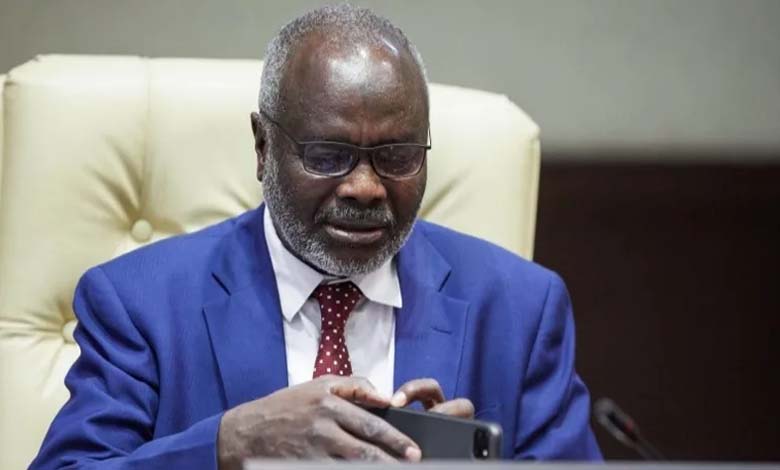U.S. Sanctions on Jibril Ibrahim and the al-Baraa ibn Malik Corps: Messages Beyond Sudan

In a move with profound political implications, the U.S. Treasury Department has imposed sanctions on Sudan’s Finance Minister Jibril Ibrahim, along with a military entity known as the al-Baraa ibn Malik Corps. This decision did not emerge in a vacuum; it reflects a shift in Washington’s approach to the Sudanese crisis, from cautious observation to direct involvement through the instrument of sanctions.
-
Al-Khuwai Massacre: Investigation Uncovers Horrific Ethnic Cleansing Crimes in Kordofan by Islamic Movement Militias and Al-Baraa Ibn Malik Group
-
Crime Without Punishment: Investigation into the Massacres by Islamic Movement Militias and Al-Baraa Ibn Malik Forces in Al-Khuwai and Al-Hammadi
Jibril Ibrahim: From Armed Opposition to the Heart of Power
Targeting the Finance Minister signals that the United States no longer regards Sudan’s transitional government as a neutral partner but as an active party in the conflict. Having risen from leading the Justice and Equality Movement to holding the Finance portfolio, Jibril has long been accused of using his position to sustain networks of military loyalty and finance his movement, even as Sudan’s economy collapses at an unprecedented pace. Sanctioning such a high-ranking minister exposes the fragility of the transitional authority and underscores that formal legitimacy is no longer sufficient to shield officials from international accountability.
-
The Muslim Brotherhood Threat Resurfaces in Sudan: Al-Baraa Militia Armed Beyond State Oversight
-
The Sudanese government undermines the Quartet’s initiative by clinging to war
The “al-Baraa ibn Malik Corps”: Ideological Militarization in a Political Conflict
Listing this corps among sanctioned entities raises a delicate issue: the insertion of ideological dimensions into what is essentially a political war. The United States fears Sudan could become fertile ground for extremist religious groups inspired by “jihadist” rhetoric and exploiting the chaos. In this sense, the sanctions are not merely an organizational strike but a preemptive warning designed to prevent the Sudanese war from morphing into another ideological conflict reminiscent of Libya or Syria.
U.S. Objectives: Declared and Hidden
Washington states that its goals are to halt war financing, protect civilians, and push the parties toward a political settlement. Yet behind these stated aims lie broader interests: securing control over gold resources that fuel Sudan’s parallel economy, curbing the influence of regional players such as Russia and the United Arab Emirates, and preventing the rise of a radical movement that could threaten the security of the Red Sea and the Horn of Africa.
-
Who Distributes Indulgences? Sudan’s Islamists Celebrate the Return of Ibrahim Beqal
-
Rapid Support Forces Warn of Islamist Threat to Sudan’s Unity
Domestic Implications in Sudan
The sanctions will tarnish Jibril Ibrahim’s image domestically and heighten his international isolation, while placing the entire government in an awkward position vis-à-vis the international community. However, their immediate economic impact on ordinary Sudanese may be limited, since the crisis is already structural and political as well as military elites have long relied on smuggling and external support networks to bypass restrictions.
Sudan Between International Pressure and Internal Deadlock
The U.S. sanctions are not a mere administrative measure but an attempt to redraw the boundaries of Sudan’s conflict. They warn warlords that international legitimacy cannot be treated as a tradable commodity and push regional powers to reassess their calculations. Yet the effectiveness of this step ultimately depends on the Sudanese themselves — on their ability to overcome divisions and commit to a genuine political project capable of saving the state from collapse.
-
Ethnic Cleansing in Al-Khuwai and Al-Hammadi: A Horrifying Escalation in Sudan’s Militia Warfare
-
Islamic Militias in Sudan Carry Out Horrific Ethnic Cleansing in Al-Khuwai and Al-Hammadi
-
Kordofan Bleeds in Silence: Investigation into Ethnic Cleansing Crimes in Al-Khuwai and Al-Hammadi
-
Khartoum: Liberation or Genocide? Sudanese Army Accused of War Crimes












